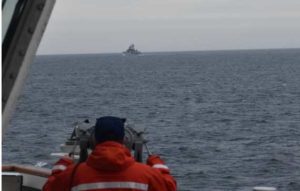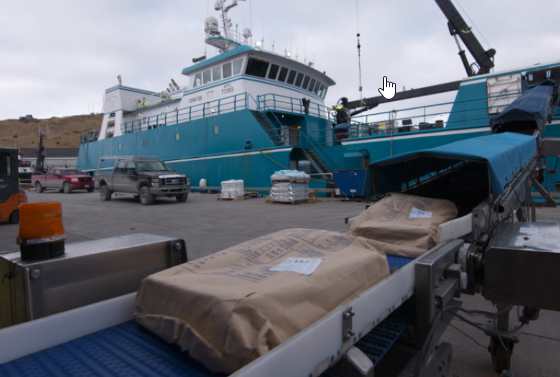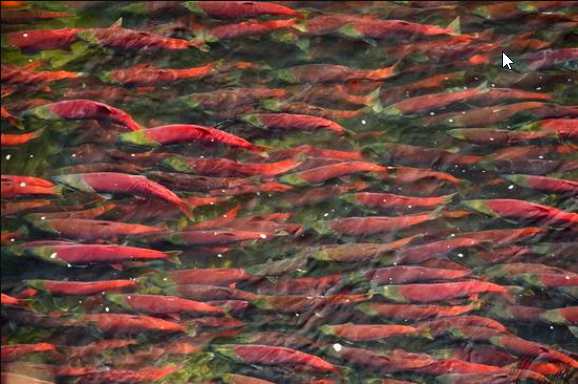
Washington, D.C. — Friday, U.S. Representative Mary Peltola (D-AK) celebrated a pro-fish decision she brought to national attention to support fishermen in Alaska. An Executive Order signed by the President Friday empowers the United States to combat predatory foreign trawlers, particularly in the Bering Sea and North Pacific regions. The order builds upon existing U.S. sanctions against Russia by closing a loophole to prevent seafood harvested in Russian waters or by Russia-flagged vessels processed in third countries, such as China, from entering the US market.
“Thank you to our Alaskan fishermen, the Alaska delegation, and countless Alaskans who have worked tirelessly to educate the Administration on this issue,” said Representative Peltola. “I cannot stress enough the importance of safeguarding our North Pacific Ocean and ensuring the economic well-being of Alaskan fishermen. We must not turn a blind eye to the alarming threat that unregulated foreign trawlers pose to our local fishermen and marine ecosystems. Today, we have achieved a major milestone in pro-fish policymaking, equipping us with the necessary tools to fiercely protect our interests and promote sustainable fishing practices. I was proud to work with my Alaska delegation partners and the Administration to implement this crucial policy change that will protect Alaskan fishermen and cut off one of Putin’s revenue sources for his bloody war in Ukraine.”
The Executive Order is expected to be signed at 9 am today, December 22.
Russian vessels that operate in the Bering Sea and North Pacific regions are a significant problem for Alaskan fishermen. These largely unregulated vessels circumvent U.S. sanctions applied after the Russian invasion of Ukraine by reprocessing their fish in China. Recent reporting from the Outlaw Ocean Project has shown that this processing often occurs using forced labor by Uyghur ethnic minorities in China. This seafood is then exported to America at artificially low prices, undercutting Alaskan fishermen.
The new Executive Order will also amend E.O. 14068 to further ensure that Russia is not able to skirt certain import bans by exporting goods indirectly via third countries to the United States, specifically in regards to certain diamonds mined in Russia and seafood harvested in Russian waters or by Russia-flagged vessels that are later substantially transformed in third countries. The expanded prohibitions will be active once the appropriate departments issue determinations naming covered goods.
- Russia has been funding its war in Ukraine partially through harvesting and selling vast amounts of fish, including salmon, in the Pacific.
- On March 11, 2022, the Administration announced it would prohibit the import of Russian seafood into the United States, in addition to banning goods from several other signature sectors of Russia’s economy.
- To avoid sanctions, Russia has begun selling fish to China to process and re-export to the United States. Nearly a third of wild-caught fish imports from China are estimated to be of Russian origin and Russian seafood exports to China are up more than 30 percent compared to last year. As highlighted in recent reporting from the Outlaw Ocean Project, much of the seafood processed in China appears to use forced labor by Muslim minority Uyghurs.
- For years, Russia and China have locked U.S. seafood products out of their markets. Russia banned U.S. seafood from entering its market in 2014, and China has imposed retaliatory tariffs of 30 percent on U.S. seafood products since 2018.
- On June 15, 2023, Rep. Peltola and Sens. Sullivan and Murkowski introduced the U.S-Russian Federation Seafood Reciprocity Act of 2023, legislation that would impose a comprehensive ban on the import of all Russian-origin seafood products into the United States.
- Rep. Peltola has continued to work closely with the Administration to improve enforcement of its executive order and stop Chinese-processed Russian fish from flooding American supermarkets.
###[content id=”79272″]








